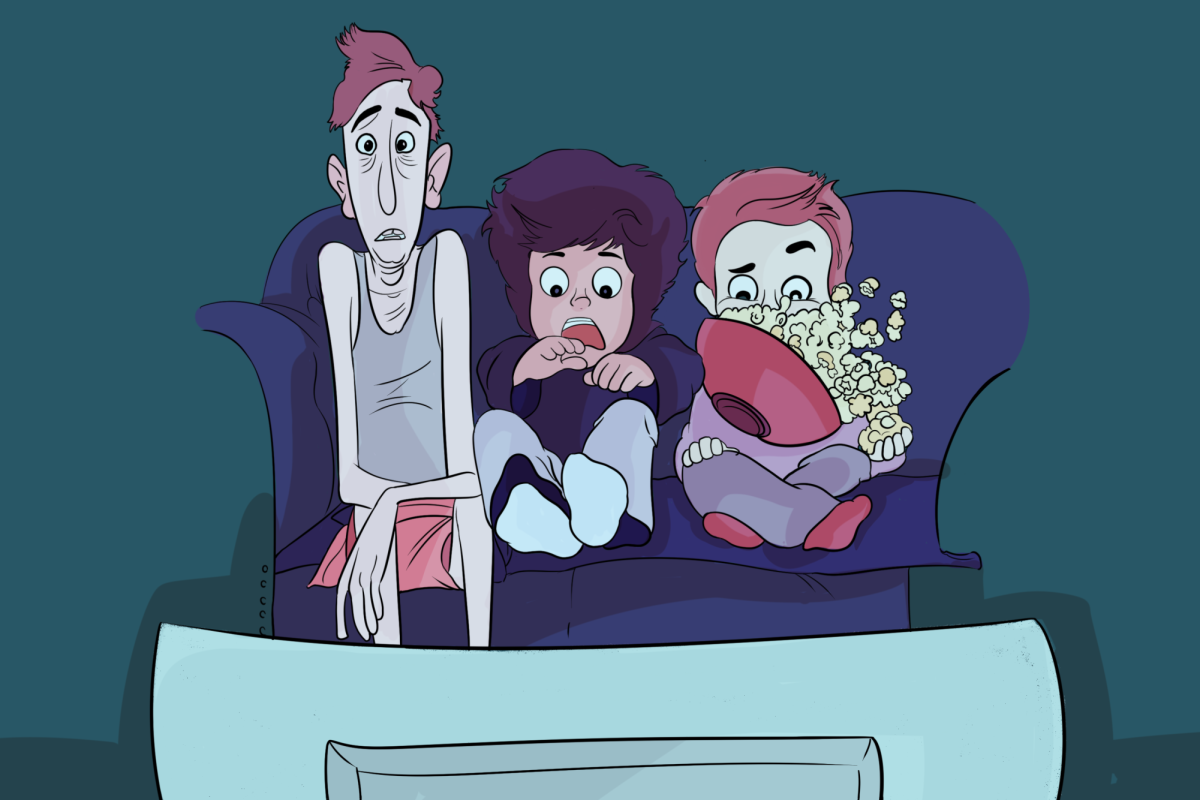Content warning: This article contains mentions of suicide.
Thanksgiving is a complicated holiday. Notwithstanding its ugly colonial past, the holiday as it exists today is only as appealing as the family that you spend it with and the conversations that arise at the dinner table. Who did your folks vote for? Why does your weird uncle think he can say anything about your tattoo? Who’s going to be the first person to talk to your rich grandma’s new 23-year-old arm candy? Hopefully if you try to unwind with these three movies, you can inoculate yourself against whatever peculiarities your Thanksgiving may hold this year.
“Eve’s Bayou” (1997)
American filmmaker Kasi Lemmons’s “Eve’s Bayou” is a lush examination of unspoken family traumas. In 1960s Louisiana, the Batiste family is trying very hard to ignore a secret. Family patriarch and town doctor Louis Batiste (Samuel L. Jackson) is a provider for his wealthy family, and by most metrics a dutiful father and husband. He is also, though, a serial adulterer who uses his job as a cover for his infidelity. His daughter, Eve (Jurnee Smollett) discovers his secret during a party, and she grapples with navigating her relationship with her father and the rest of her family, knowing that her comfortable lifestyle is only possible if everyone ignores the skeletons in the closet.
While it’s already remarkable that Lemmon’s directorial feature debut balances so many characters and emotions in such an intricately realized period setting, the film also makes some experimental stylistic choices that are successful solely because of Lemmon’s skill as a director. There is an undercurrent of mysticism throughout the film, and it manifests itself through cut-ins of black-and-white premonitions of the future. These sequences stand in stark contrast to the rest of the film’s elegant Hollywood presentation, and they are simultaneously startling and ravishing. These visuals add to what feels like a timeless fairytale of a family feeling obligated to maintain peace, and ultimately what can happen if we decide to keep things bottled up instead of confronting them. You may want to watch this movie to give you the courage to confide in your loved ones.
“The Celebration” (1998)
“The Celebration,” by Danish filmmaker Thomas Vinterberg, is a nail-biting film about what happens when a family decides to spill their dirty laundry. A fabulously wealthy family reunites for the patriarch, Helge’s (Henning Moritzen), 60th birthday in the Dutch countryside, only for the festivities to be interrupted by the eldest son, Christian (Ulrich Thomsen). When prompted to give a speech, Christian reveals an unspeakable secret about his father. The family and their guests try to ignore the revelation at first, but the night starts to break loose as the ugliness underneath both Helge and the rest of the family starts to surface.
This film will give you anxiety. Even when horrific truths aren’t revealed, most of the characters are at least unpleasant to watch, if not downright repulsive. This is a family corrupted by excess, and the only way it could really ever start to heal is by letting it first burn. The camera — like in HBO’s “Succession,” which was heavily inspired by this film — is frenetic and hand-held, whipping between bereaved family members trying to remain civil despite their outward disdain for each other. Every time someone tries to keep the party going despite Christian’s testimony, there’s extra anxiety from the knowledge that they’re just adding more fuel to a ticking time bomb as the awkwardness fails. It’s a deeply unpleasant watch, but ultimately rewarding with a satisfying resolution which will both likely dwarf your family issues, and also show that there may still be hope for recovery.
“The Quiet Family” (1998)
“The Quiet Family” is a pitch-black comedy about the rare family where everyone seems to be crazy in the same way. In a remote hiking destination, the Kang family opens a lodge and finds that their first guest has died from suicide. Not wanting to risk a PR nightmare, the Kangs decide the only logical course of action is to hide the guest’s body in the middle of the woods. However, their troubles don’t end there, as when more guests start arriving, more of them start to die from a variety of causes — leading to, obviously, more bodies to hide. What follows is an almost screwball comedy where each successive body added to the pile of casualties is an opportunity for physical humor.
Kim Jee-woon’s feature debut lays out what would become one of the most recognizable hallmarks of that vital era of early 2000s filmmaking: dark subject matters made hilarious with razor-sharp wit. Kim’s group compositions are remarkably mature and allow for the actors to build off each other for maximum comedic potential. The shared screen time also allows for each family member’s unique dynamic to shine through. This is the kind of film that would be great to put on if you actually get along well with your family. If you don’t, it can serve as a sort of aspirational model for family gatherings to come. Are you really family if you aren’t willing to bury half a dozen bodies in the woods together?
Contact Max Vetter at [email protected].
























































































































































